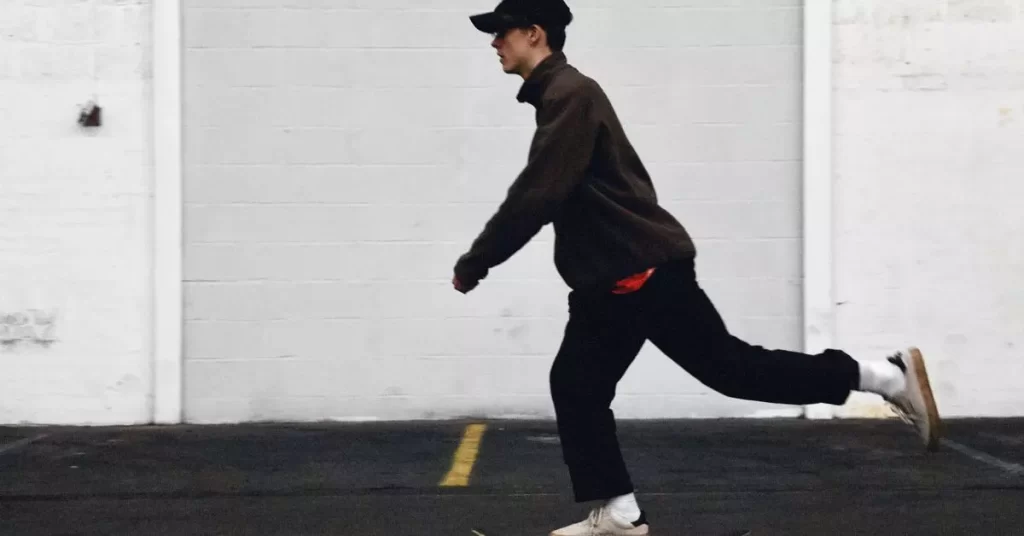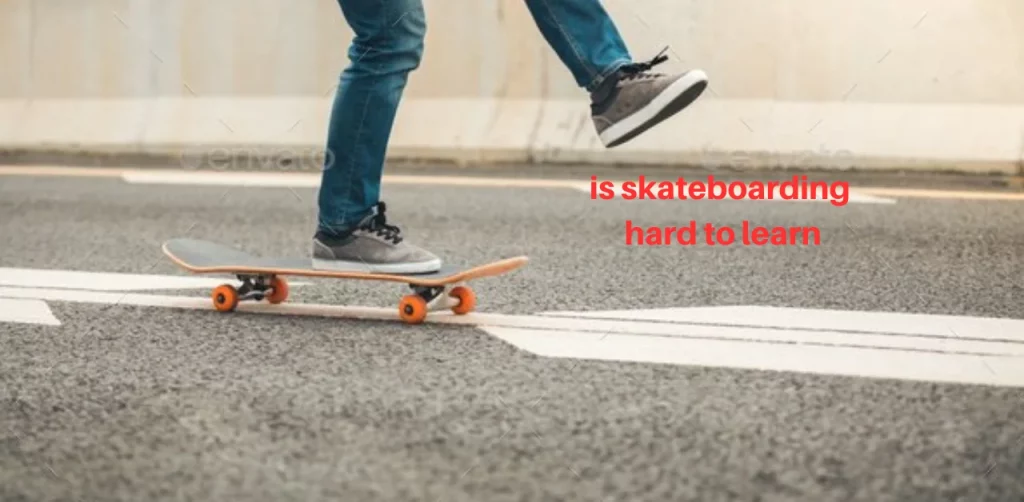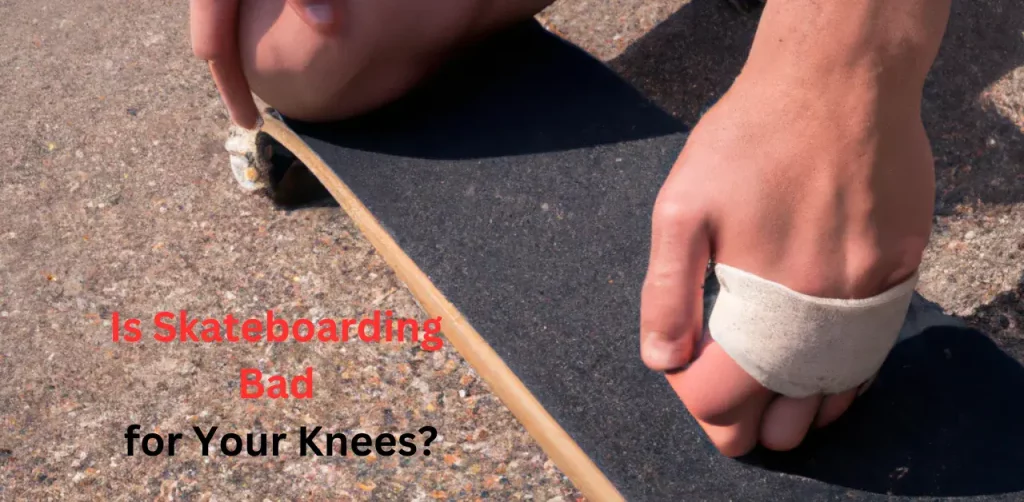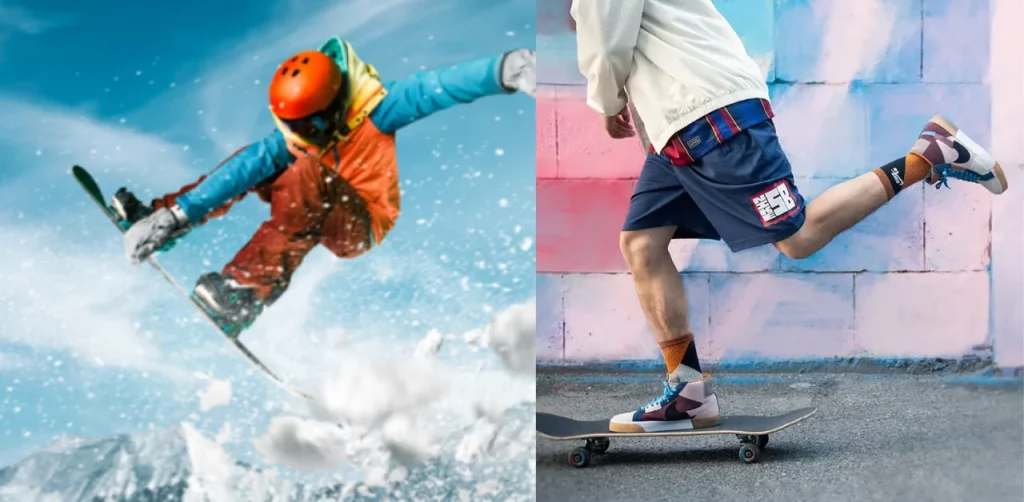Skateboarding has long been considered an urban sport, with riders weaving effortlessly through the streets and sidewalks. However, the question remains: is it illegal to skateboard in the Street? The answer may surprise you.
In many places, skateboarding on public roads or highways is illegal due to safety concerns. Municipalities argue that skateboarders pose a risk to themselves and others, potentially causing accidents or obstructing traffic flow. However, some cities have recognized the popularity of skateboarding and implemented designated areas where skateboarders can freely ride without breaking any laws.
But should skateboarding be treated differently from other modes of transportation like biking or rollerblading? After all, these activities are also performed in shared spaces. Perhaps instead of outright banning skateboarding in certain areas, cities should focus on improving infrastructure to accommodate skaters safely – such as dedicated skate parks or designated lanes – just as they do for cyclists or pedestrians.
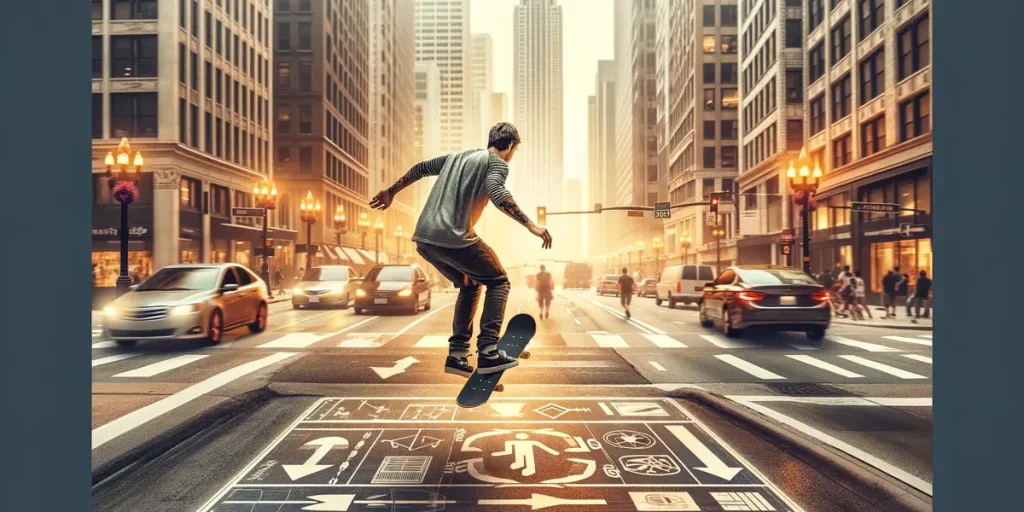
is it illegal to skateboard in the street?
The legality of skateboarding in the street varies significantly from place to place, as different countries, states, provinces, or municipalities have laws and regulations. Here are some general categories of rules that may apply, but it is essential to check the specific laws in your area:
Completely Legal
In some places, skateboarding is treated similarly to bicycling, and it is entirely legal to skateboard on the street as long as the skateboarder follows the same rules as other vehicles.
Restricted but Legal
Some jurisdictions allow skateboarding in the street but impose certain restrictions. For instance, skateboarding might be allowed only during certain hours, on certain streets, or only if the skateboarder travels at or below a certain speed. There may be rules about yielding to cars and pedestrians, signaling turns, etc.
Allowed in Bike Lanes or Paths
Some areas allow skateboards in bike or multi-use paths but not in general traffic lanes.
Illegal in the Street, Legal on Sidewalk
Some places prohibit skateboarding in the street but allow it on the sidewalk, often with restrictions to ensure pedestrian safety.
Illegal on Both Streets and Sidewalks
In some jurisdictions, skateboarding is prohibited on both streets and sidewalks in certain areas, typically in busy commercial districts or downtown areas.
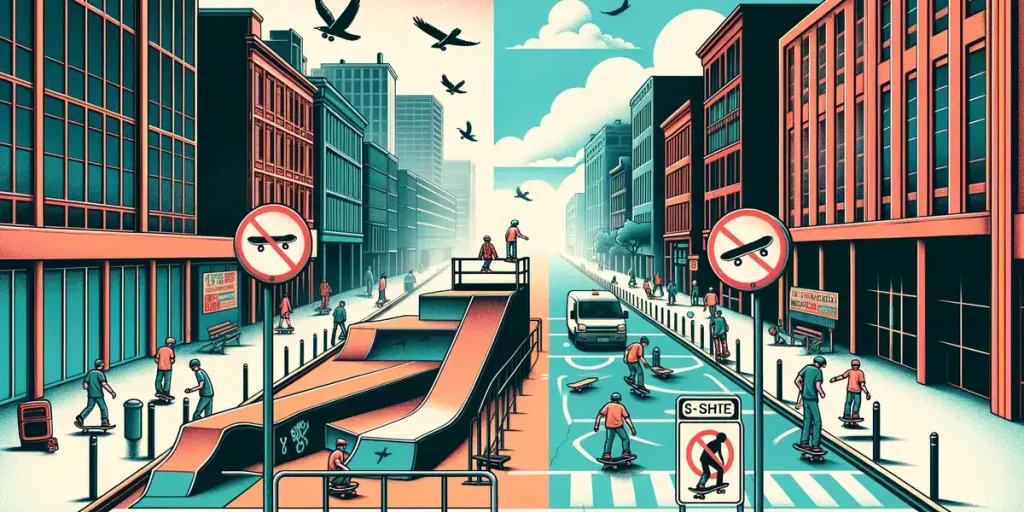
Completely Illegal
A few places have laws that make skateboarding illegal everywhere in public, both on streets and sidewalks.
Specific Skateboarding Areas
Some cities have designated skate parks where skateboarding is explicitly allowed, and doing so outside these areas may be prohibited or restricted.
Age Restrictions
Some areas have age restrictions, allowing only people of a certain age or older to skateboard on public streets.
Equipment Requirements
Some jurisdictions require skateboarders to use specific safety equipment (like helmets, reflective clothing, or lights) on the street.
Other Restrictions
There are a variety of other possible restrictions. For example, some places prohibit skateboarding tricks or stunts on public streets, even if riding a skateboard is allowed.
Because the laws can vary, it is essential to check local ordinances or consult with local law enforcement or a legal professional in your area to get the most accurate and up-to-date information. It’s also worth noting that, even in places where skateboarding on the street is legal, it may still be possible for skateboarders to be cited for other offenses (like reckless endangerment if they are skating in a way that is dangerous to themselves or others).
What are the Consequences of Skateboarding in the Street?
The consequences of skateboarding in the street vary widely depending on the location, local laws and regulations, and the specific circumstances involved. Here are some potential impacts, both positive and negative:
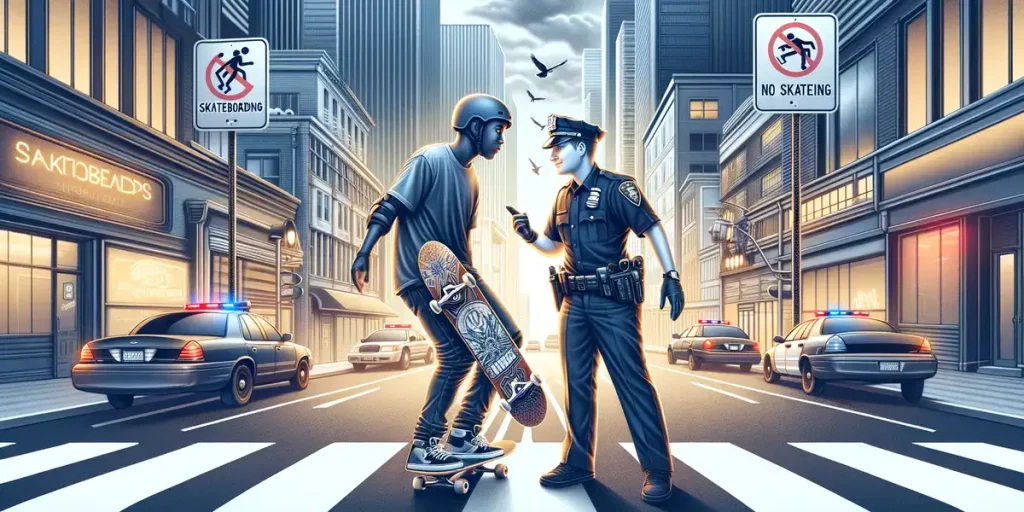
Positive Consequences
Exercise and Health Benefits
Skateboarding is a form of physical exercise that can improve cardiovascular health, balance, coordination, and strength.
Transportation
For some people, skateboarding is a convenient and eco-friendly way to get around town.
Community
Skateboarding in the street can be a way to connect with other skateboarders and be part of a local or global community.
Negative Consequences
Legal Penalties
If skateboarding in the street is illegal in your area, you may face fines, community service, or even arrest. The severity of the penalty often depends on local laws and the discretion of law enforcement officers.
Confiscation of Skateboard
In some jurisdictions, law enforcement officers may have the authority to confiscate your skateboard if you are found to violate local ordinances.
Accidents and Injuries
Skateboarding in the street can be dangerous, especially in areas with heavy traffic. Accidents can lead to severe injuries for skateboarders, pedestrians, or drivers.
Damage to Property
Skateboarding in the street can sometimes damage public or private property, which might result in fines or civil lawsuits.
Reputation and Relationship with the Community
Skateboarding in the street, especially if done irresponsibly or illegally, can lead to negative perceptions among community members and strain relations between skateboarders and other residents.
Potential for Conflict
Skateboarding in the street can sometimes lead to conflicts with law enforcement, drivers, pedestrians, or other community members.
Insurance Issues
If you are injured while skateboarding in the street or if you cause an accident, your health or liability insurance may not cover the costs if skateboarding in the street is considered a risky or illegal activity.
Because the specific consequences can vary depending on where you are and what you are doing, it’s essential to familiarize yourself with the local laws and regulations regarding skateboarding in your area and consider the potential risks and benefits before deciding to skateboard in the street.
How can Skateboarding in the Street affect Traffic Safety?
Skateboarding in the street can have a range of effects on traffic safety, both for the skateboarders themselves and for other road users, including drivers, cyclists, and pedestrians. Here are some ways that street skateboarding can impact traffic safety:
Potential Negative Effects on Traffic Safety
Obstructing Traffic Flow
Skateboarders in the street may move at a different pace than motor vehicles, potentially slowing down traffic or causing drivers to make sudden and unsafe maneuvers to pass them.
Unpredictable Movements
Skateboarders might make quick, unpredictable turns or movements that drivers are not expecting, increasing the risk of accidents.
Limited Visibility
Skateboarders are smaller and lower to the ground than cars, making them harder for drivers to see, especially at night or in poor weather conditions.
Distracted Driving
Skateboarders in the street might distract drivers from the road, increasing the risk of accidents.
Increased Risk at Intersections
Intersections can become more complex and potentially dangerous when skateboarders are added to the mix of cars, pedestrians, and cyclists.
Risk of Collision
If a skateboarder falls or loses control, they may end up in the path of an oncoming vehicle, leading to a high risk of severe injury or fatality.
Damage to Vehicles
In some cases, skateboarders might collide with vehicles, causing damage.
Potential Positive Effects on Traffic Safety
Calming Traffic
The presence of skateboarders and other non-motorized road users can sometimes have a “traffic calming” effect, encouraging drivers to slow down and pay more attention to their surroundings.
Promoting Complete Streets
The presence of skateboarders using roadways responsibly may encourage communities to design “complete streets” that are meant to be safe and comfortable for all users, including pedestrians, cyclists, drivers, and skateboarders.
Encouraging Safe Driving Behavior
The visible presence of vulnerable road users, like skateboarders, can encourage drivers to drive more cautiously.
Mitigating Factors:
The actual impact of skateboarding in the street on traffic safety can be influenced by several factors, including the behaviour of the skateboarders (e.g., are they following traffic rules?), the design of the streets (e.g., are there bike lanes or other spaces where skateboarders can safely travel?), and the behaviour of drivers (e.g., are they respecting the rights of other road users and following the speed limit?).
To improve safety for everyone, skateboarders need to be familiar with and follow local traffic rules and for drivers to be aware of and respectful toward all road users. Cities can also consider infrastructure improvements, like creating dedicated lanes for non-motorized road users and public education campaigns to promote safe behaviours and improve understanding between different road users.
Conclusion
While it may be technically illegal to skateboard in specific locations, the legality varies depending on local regulations. Rather than outright forbidding this popular activity altogether, communities should explore creative ways to safely integrate skateboarding into the urban landscape. By doing so, they can tap into its cultural significance and provide opportunities for skaters while prioritizing public safety at the same time.

“Welcome to our website, Here You’ll find a wealth of information on finding the right skating gear that will last for years to come, as well as tips and tricks to help you improve your skills. Whether you’re a beginner or an experienced skater, you’ll find something of value here.”
